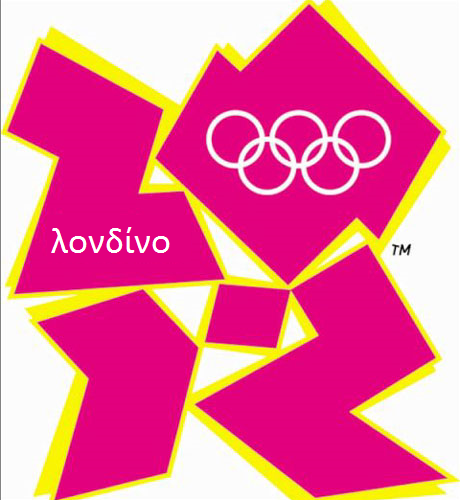
Σκόπησον τὸ θάρσος. Οὐδὲν ὡς συνέχει τὴν νοῦν καὶ
συνέπλεξε τοὺς ὁρισμοὺς τῶν σοφῶν τῶν μονῶς εὐλόγων. Θάρσος σχεδόν ἐστι ὑπεναντίωμα.
Ἐστί γαρ ἐπιθῡμία μεγάλη ζώειν ἐν τῇ μορφῇ προθῡμίης ἀποθανεῖν. “Ὁ ἀπολέσας τὴν
ψυχὴν ἀυτοῦ, εὑρήσει αὐτήν,” οὔκ ἐστι αἰνιγμάτιον τοῖς ἁγίοις καὶ ἀριστεῦσι. Ἐστὶ
νουθέτησις ἐπιτυχοῦσα τοῖς ναύταις καὶ ὀρεινοῖς. Γραφείη ἐν βιβλίῳ περὶ τὸ τὰς Ἄλπεις
ὑπερβαίνειν ἢ τὸ γυμνάζειν τῶν στρατιωτῶν. Τοῦτο τὸ παράδοξόν ἐστι ἡ ὅλη ὑπόθεσις
τοῦ θάρσεος, καὶ τοῦ ἀνθρωπειοτέρου ἢ θηριωδεστέρου. Ἀνθρώπος τῇ θαλάττῃ ἀπειλημμένος
σῴσαι ἂν τὴν ἑαυτοῦ ζωὴν εἰ αὐτὴν ἐν κρημνῷ παραβάλοι. Μονῶς τὸν θάνατον ἀποφυγεῖν
δύναται τῷ πολλάκις δακτύλου ἐντὸς βαδίζειν αὐτοῦ. Στρατιώτῃ ὑπὸ τῶν πολεμίων
περιβεβλημένῳ, ὡς ἑαυτῷ ὅδον ἐκτεμών, συνεστέαι ἐπιθῡμία μεγάλη ζώειν καί τις ἀκήδεια
πρὸς τὸ ἀποθανεῖν. Ἐκεῖνον χρὴ οὐκ αὔτως τὴν ζωὴν γλίχεσθαι, ὥς γαρ δειλὸς
γενήσεται, μηδὲ ἀποφεύξεται. Ἐκεῖνον χρὴ οὐκ αὔτως τὸν θάνατον προσμένειν, ὥς
γαρ ἑαυτὸν αὐθέντης γεγήσεται, μηδὲ ἀποφεύξεται. Χρὴ ἐκεῖνον μανικῶς τὴν ζωὴν ζητεῖν
ὦν εἰς αὐτῆς ἀμελής· χρὴ τήν μεν ζωὴν ἐπιθῡμεῖν ὡς τὸ ὕδωρ, τόν δε θάνατον
πίνειν ὡς τὸν οἶνον.
(Skópēson to thársos. Ouden hōs synéchei tēn noûn kai
synéplexe tous horismous tôn sophôn tôn monôs eulógōn. Thársos schedón esti
hypenantíōma. Estí gar epithȳmía megálē zṓein en tê morphê prothȳmíēs
apothaneîn. “Ho apolésas tēn psychēn autoû, heurḗsei autḗn,” oúk esti ainigmátion
toîs hagíois kai aristeûsi. Esti nouthétēsis epitychoûsa toîs naútais kai
oreinoîs. Grapheíē en biblíō peri to tas álpeis
hyperbaínein ē to gymnázein tôn stratiōtôn. Toûto to parádoxón esti hē hólē
hypóthesis toû thárseos, kai toû anthrōpeiotérou hē thēriōdestérou. Anthrṓpos
tê thaláttē apeilēmménos sṓsai an tēn heautoû zōēn ei autēn en krēmnô parabáloi.
Monôs ton thánaton apophygeîn dýnatai tô pollákis daktýlou entos badízein autoû.
Stratiṓtē hypo tôn polemíōn peribeblēménō, hōs heautô hódon ektemṓn, synestéai
epithȳmía megálē zṓein kaí tis akḗdeia pros to apothaneîn. Ekeînon chrē ouk
aútōs tēn zōēn glíchesthai, hṓs gar deilos genḗsetai, mēde apopheúxetai. Ekeînon
chrē ouk aútōs ton thánaton prosménein, hṓs gar heautonauthéntēs gegḗsetai,
mēde apopheúxetai. Chrē ekeînon manikôs tēn zōēn zēteîn ôn eis autês amelḗs:
chrē tḗn men zōēn epithӯmeîn hōs to hýdōr, tón de thánaton pínein hōs ton
oînon.)
Take the case of courage.
No quality has ever so much addled the brains and tangled the definitions of
merely rational sages. Courage is almost a contradiction in terms. It means a
strong desire to live taking the form of a readiness to die. “He that will lose
his life, the same shall save it,” is not a piece of mysticism for saints and
heroes. It is a piece of everyday advice for sailors or mountaineers. It might
be printed in an Alpine guide or a drill book. This paradox is the whole
principle of courage; even of quite earthly or quite brutal courage. A man cut
off by the sea may save his life if he will risk it on the precipice. He can
only get away from death by continually stepping within an inch of it. A soldier surrounded by enemies, if he is to
cut his way out, needs to combine a strong desire for living with a strange
carelessness about dying. He must not merely cling to life, for then he
will be a coward, and will not escape. He must not merely wait for death, for
then he will be a suicide, and will not escape. He must seek his life in a
spirit of furious indifference to it; he must desire life like water and yet
drink death like wine.
—G. K. Chesterton













